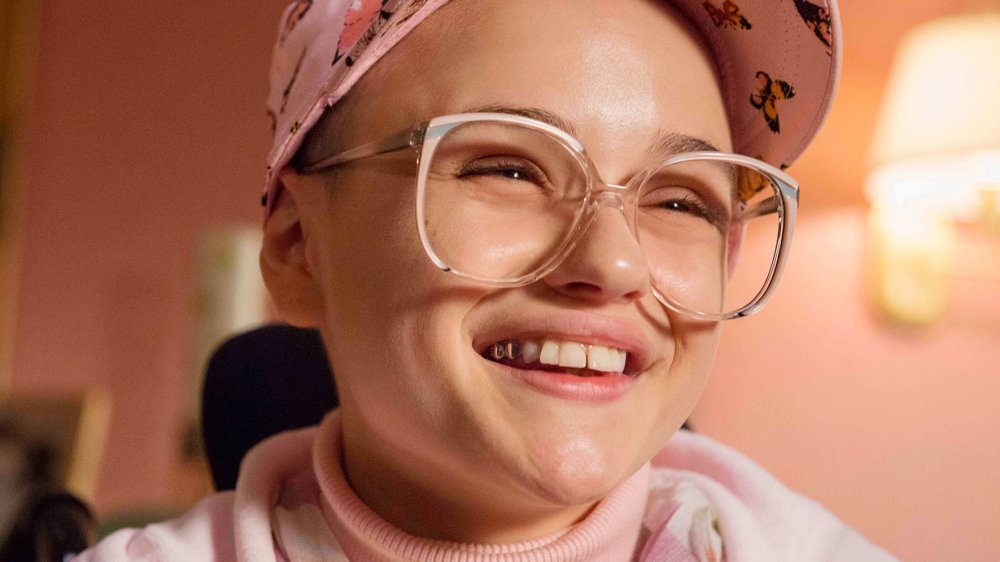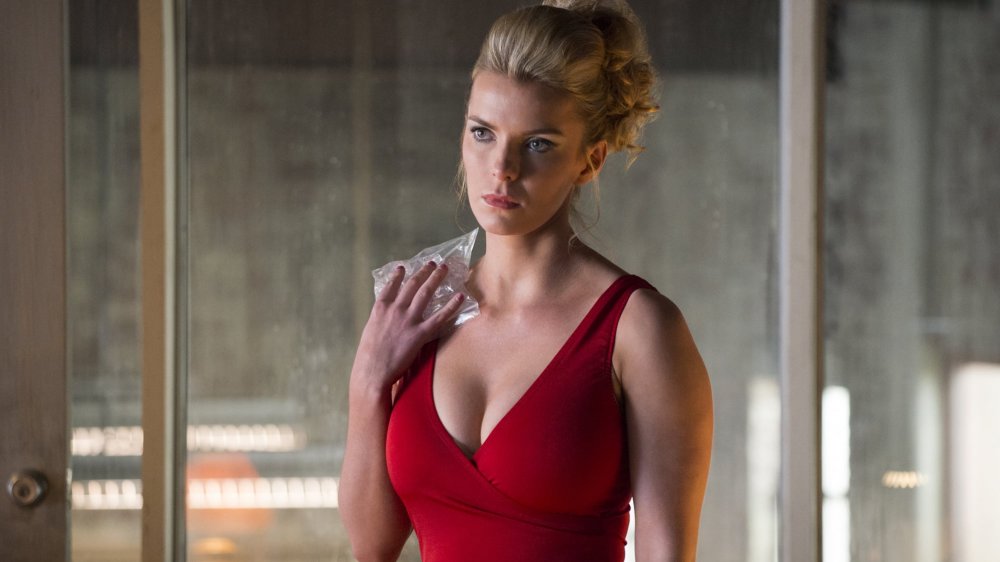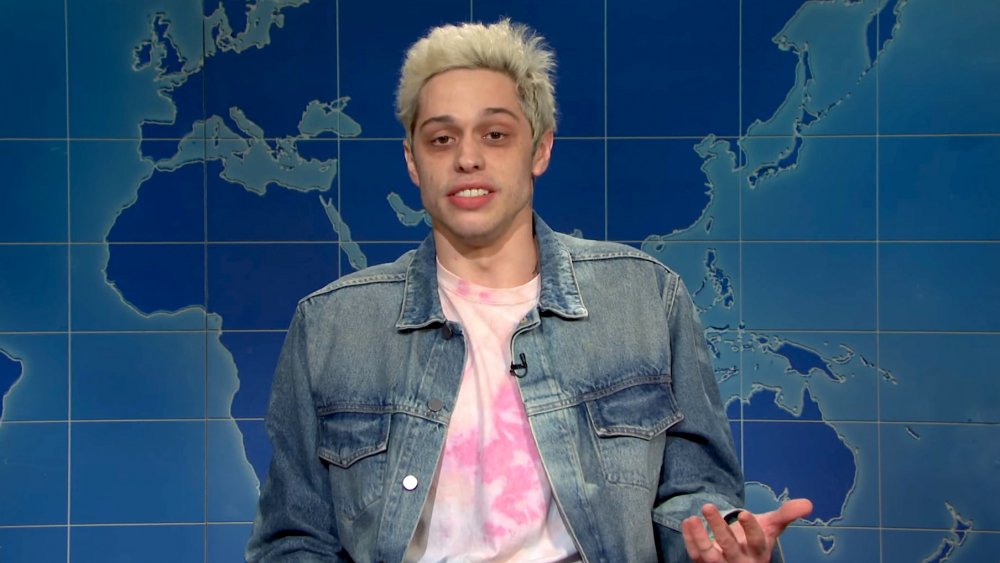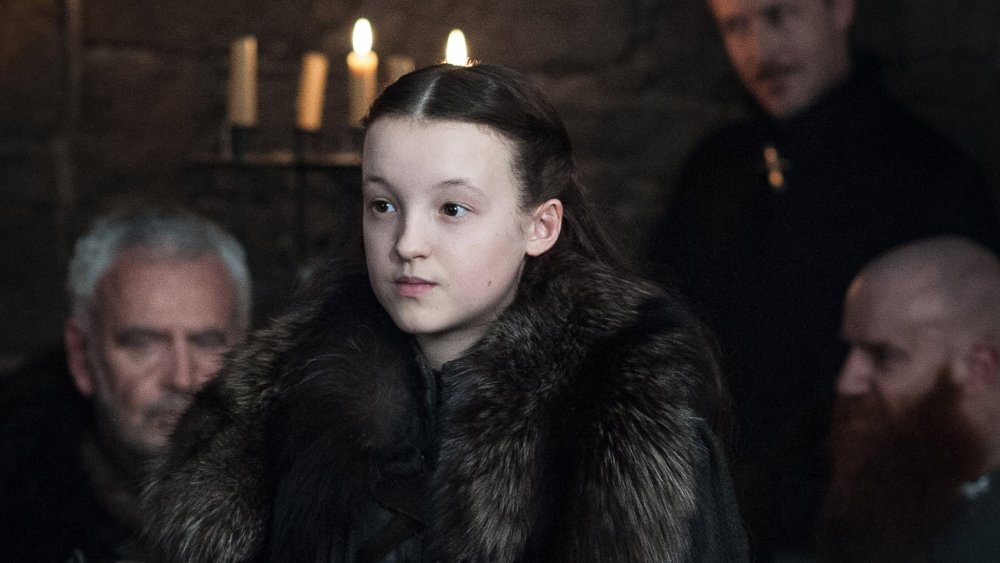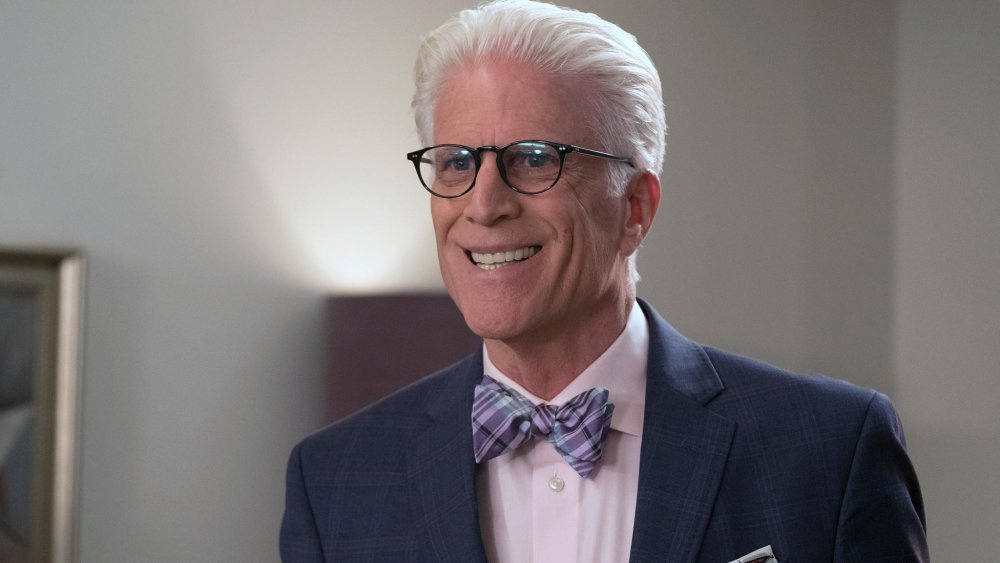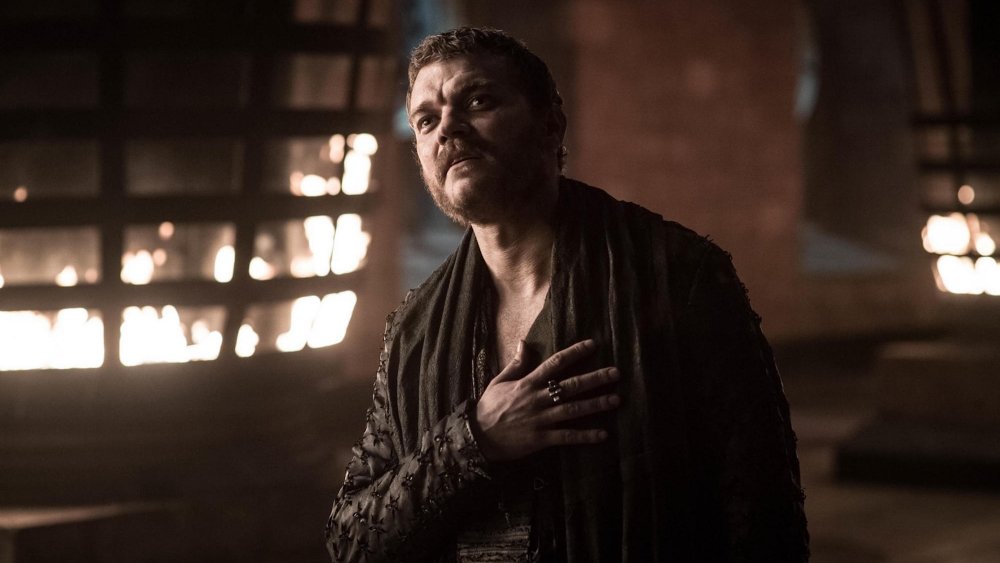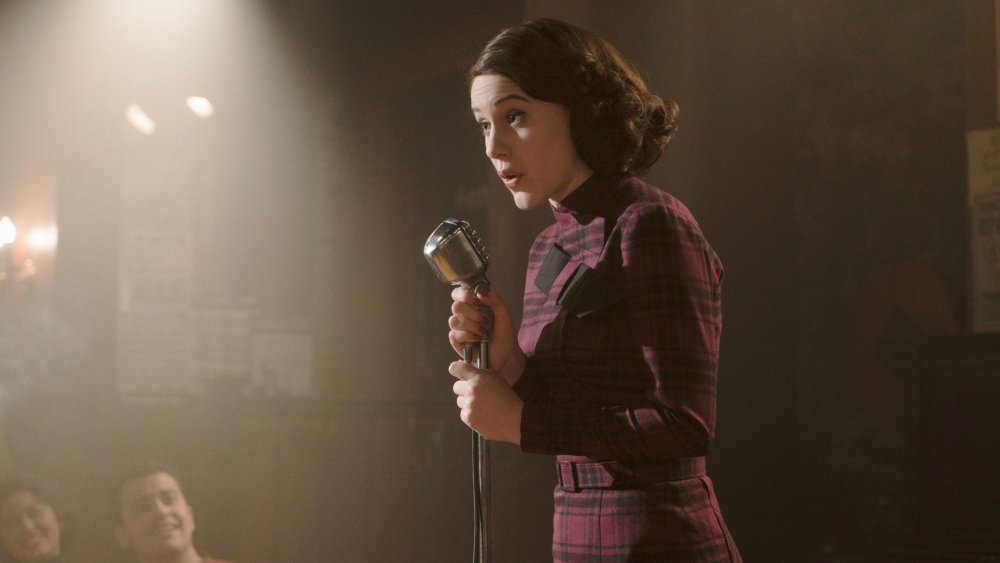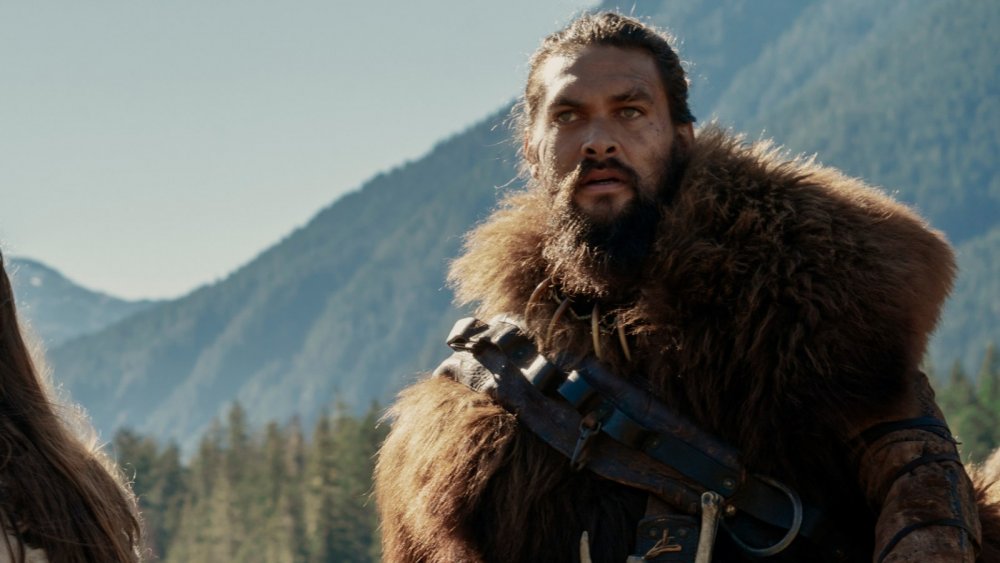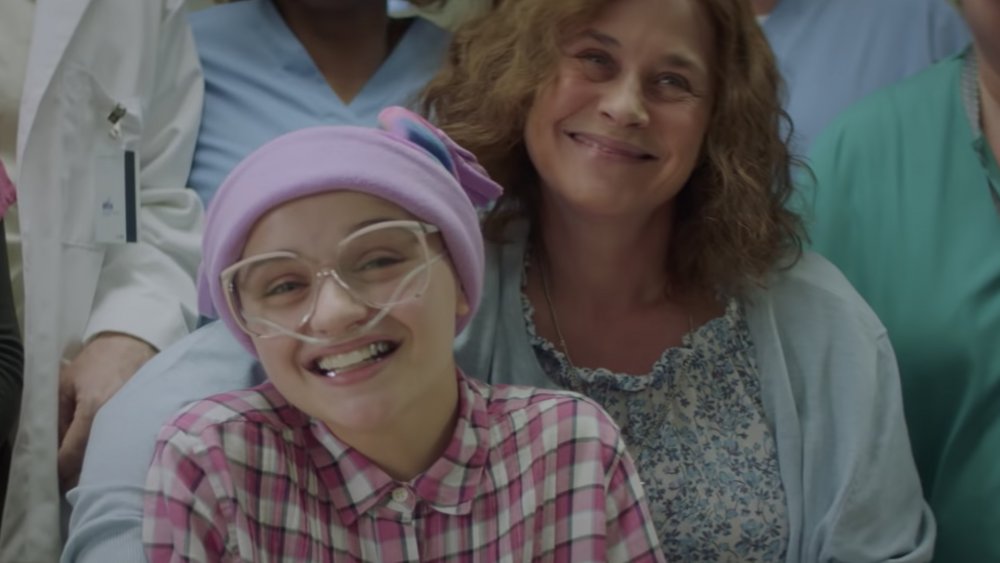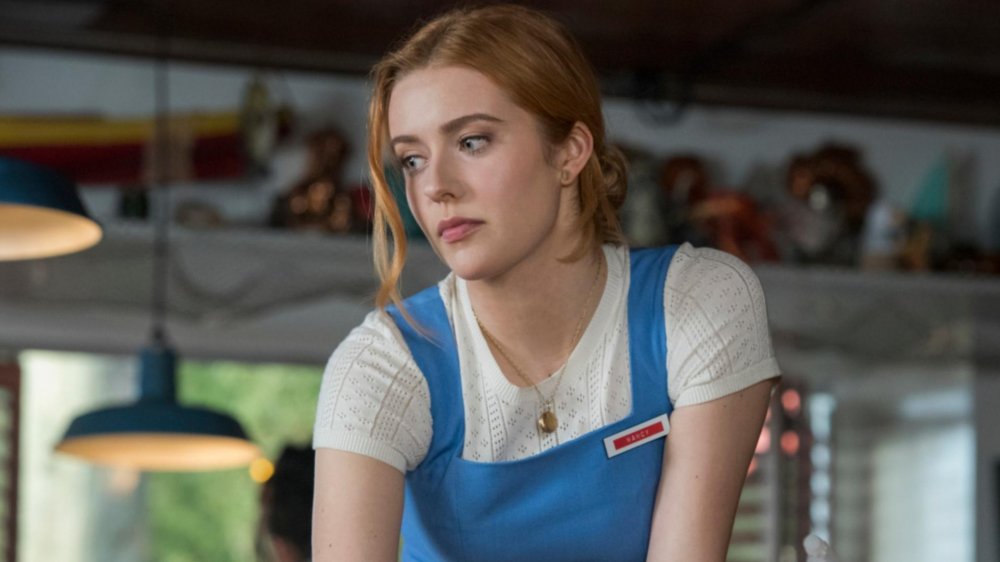The 5 Best And 5 Worst TV Performances Of 2019
We are deep into the age of peak TV, and so far, it's a pretty great era to occupy. Tired genres have been reinvigorated by new ideas, from classic noir to high fantasy. Visionaries deliver their art to the masses instantaneously, via devices that can be used anywhere, at any time. Watercooler talk ranges from the dissection of His Dark Materials' multiple realities to the grit behind the glitz of The Morning Show. Somehow, in this era of plenitude, Archie Andrews is rubbing shoulders with lesbian superheroes, wealthy mothers with murderous secrets share networks with Catherine the Great, and for a while, everyone was super into a show about dragons.
As a result, this era of peak TV is full of fantastic performances from truly talented actors, and the year 2019 was no exception, featuring some incredible turns from both TV veterans and up-and-comers. However, for every landmark performance, there were some true clunkers. Peak TV has not, after all, solved the problem of bad acting. If anything, its successes have only made the failures more visible. So how did the year fare in terms of its highest highs and lowest lows? We're here to explore just that. These are the best and worst TV performances of 2019, from the pint-sized zombie slayers to the post-apocalyptic tribal leaders.
Best: Betty Gilpin in GLOW
GLOW has always loved the seamier side of the entertainment industry. Taking the cast to Las Vegas in the latest season was a natural evolution, and the dizzying heights and crushing lows of an environment built shamelessly upon the id brought out the best in the show's dazzling cast. Characters like Sheila, rooted in artifice, were forced to strip down, while practical types like Ruth and Arthie discovered the joy of glitz. Debbie, the show's headlining Liberty Belle, did a little of both in falling for a charismatic businessman, struggling with the realities of motherhood, and becoming a true producer — in the best and worst ways.
Betty Gilpin has always been one of the show's most impressive assets. But in offering Debbie what seemed to be a ticket to easy street — marrying rich and settling down — GLOW allowed Gilpin to take the character to an entirely new plane of characterization. Debbie, raised in a trailer park and staring down the moment Hollywood will deem her unemployable for being a woman in her 30s, will do what it takes to survive. This means portraying Debbie with a forthright unpleasantness (recall her rant at Ruth for spurning an executive's advances) but never losing the character's steely, battle-tested resolve. Gilpin dares the viewer to judge Debbie for throwing up cheeseburgers and double-crossing lovers and forces them to admit the reality of her life. It's daring, and it pays off massively.
Worst: Pete Davidson on Saturday Night Live
Pete Davidson certainly seems to believe he's funny. Audiences know this because he's apparently unable to get through his performances without joking. Every SNL sketch he's featured in seems to contain at least one moment in which he breaks into giggles, from which he barely recovers. Perhaps Davidson believes this is charming, even adding to the humor. For the rest of us, it's tiresome.
Think for a second. What comes to mind when the words "Pete Davidson" are said? Probably his broken engagement with Ariana Grande, perhaps a few of his off-color remarks. Only then does one remember he is, technically, a comedian and a regular player on Saturday Night Live. But god, if it isn't impossible to recall any single impression, sketch, or performance. He struggles through his lines like a high schooler who thinks he really might have a shot at this whole improv thing, his effort audible in both his breaks into laughter and the generally strained way he delivers his comedy. He's best as the dopey stoner type, but as he's made quite clear, that's pretty much who he is anyway. He's barely a comedian and certainly not an actor, two qualities that are required for SNL to do what it does. He is merely Pete Davidson. And to everyone who isn't terribly interested in what that means for him off-screen, that's not nearly enough to justify his spot in the cast.
Best: Bella Ramsey in Game of Thrones
To say that the final season of Game of Thrones proved controversial would be a tremendous understatement. There is, however, one thing everyone agrees upon: Lyanna Mormont stole every scene she was in. Bella Ramsey plays the pint-sized Lady of Bear Island with an intensity that goes beyond anachronistically charming all the way into genuinely heart-wrenching. Sure, it's cute to see the girl talking tougher than all the grizzled men of the North, but her death at the hands of an undead giant is one of the most touchingly tragic moments of the entire last season.
Lyanna is the spirit of the North incarnate, a child forced to grow up by circumstances beyond her control. Yet, in her unwavering commitment to honor, she's a figure of ironclad inspiration. Ramsey forces the audience to take her as seriously and courageously as she does her countrymen, taking a sword to Westeros' often overblown notions of honor and chivalry with a true demonstration of both. Sure, she's a kid. Sure, she's a girl. But she knows what she's fighting for, and in the end, showing up to defend it is what matters. She doesn't live to see the triumph of life over death, but she had as much a hand in it as Jon Snow, Daenerys Targaryen, and all the other headlining names of Game of Thrones. Ramsey plays her with such verve, passion, and bravery, and no fan is likely to forget that.
Worst: Kate Beckinsale in The Widow
In The Widow, Kate Beckinsale's protagonist, a woman named Georgia who spots her allegedly dead husband in a news broadcast from Kinshasa, desperately wants to be the hard-bitten heroine of so many action thrillers. She gets on a plane to the Congo immediately upon spotting her husband's distinctive orange hat and starts demanding answers once she gets there. She's a take-no-prisoners kinda gal. Unfortunately, that kind of performance demands nuance, lest the woman in question come off as obnoxious. Beckinsale does not provide that nuance.
The central mystery at the heart of the story is juicy enough to carry a show forward. But watching Beckinsale insert herself into the beleaguered lives of the Congolese people she thrusts her husband's photo in front of doesn't inspire sympathy. One gets the sense of who the show wants Georgia to be — passionate, dauntless, eternally well-coiffed — but the gulf between the theoretical character and her execution is impossible to ignore. Add in the saintly excesses of later episodes, in which Georgia saves a child soldier, and you get a character plagued by the worst of two worlds: the irritatingly selfish foreigner and the absurdly selfless savior. What results is nothing so much as a mishmash of tropes that no one in their right mind would bother to root for.
Best: Ted Danson in The Good Place
The Good Place pulls off a truly devilish double-act with its premise. It's all about the exploits of people condemned to an afterlife in "the bad place" who just can't quit trying to do better. The cast's wealth of talent is key to its success, but even among such standout performers, Ted Danson manages to impress. As Michael, an immortal architect of their afterlife, he's both devil and angel, punisher and victim. Does he have an endearing affection for the mundanities of human life? Absolutely. Does he also spend his numberless days devising new and better ways to torture them for eternity? Well, yes. But oh, how dear does he find humanity's endless search for car keys!
Danson's genius is in his delicacy. Michael never falls into adorable quirkiness, nor does his growing appreciation of ethics threaten his truly alien characteristics. He's as unknowable as a character that generally appears to be human can be, his storyline a careful reveal over the course of many episodes, plot twists, and terrifying impositions by Shawn, his boss. One dearly wants him to do better but also to never stop being the bizarre bureaucrat he is. It's a balancing act few actors could pull off. Yet Danson does, his wide-eyed innocence as convincing as his total ignorance of basic decency. He might be a billion-year-old fire squid wearing a humanoid skin, but darn it if he doesn't get the audience on his side.
Worst: Pilou Asbaek in Game of Thrones
Game of Thrones was as known for its villains as its heroes. Joffrey, the surpassingly cruel boy-king, was a monster without peer. Ramsay Bolton terrorized the North for years. Cersei, despite having a bit more nuance to her nastiness, became one of the worst people in Westeros through sheer spite. This is to say nothing of more minor baddies, like the Mountain or Tywin Lannister. Westeros might have been a place of lords and ladies, but audiences loved it for the darkness undergirding their filigreed world.
Euron Greyjoy is Thrones' last attempt at a true monster, clearly built to fill the void after Ramsay's death. He sneers, postures, and makes lewd jokes with the sort of swagger that made his predecessors so hate-worthy. But that's all he ever amounts to — a worn-out copy of better characters. Pilou Asbaek plays Greyjoy like a high school bully who flings insults and come-ons at every scene partner, utterly desperate to be noticed as the bad boy he never really convinces anyone he is. He's more annoying than dangerous, a buzzing fly rather than a stalking beast. When he dies, there's no catharsis. It's more of a relief than anything else to know that he won't be wasting anymore screen time. Greyjoy might've considered himself the man who finally killed Jaime Lannister, but in truth, he was only ever an irritating, unworthy distraction in an already overstuffed show.
Best: Rachel Brosnahan in The Marvelous Mrs. Maisel
Midge Maisel of The Marvelous Mrs. Maisel could've been insufferable. A wealthy, mid-century woman of New York City, she has an enormous apartment, flawless hair, and a family servant who takes care of everyday tasks like cooking, grocery shopping, and, frequently, child-raising. Midge has it all, remaining, even in the face of her crumbling marriage, unstoppably competent, chipper, and immaculately styled.
Terrifying, right? But Rachel Brosnahan never lets the viewer forget one crucial fact: Midge knows exactly how good she is at what she does and exactly what being that person requires. Her charm, talent, and poise are all the result of tireless work, whether that takes the form of exhaustive beauty routines or a crammed comedienne's notebook. Brosnahan plays Midge as a woman who's justifiably proud of her accomplishments, but never without a wry knowledge of how hard the world makes her work for them. Moreover, for as sarcastic a character as Midge can be, Brosnahan infuses her with an immense warmth and generosity. She might crack a joke here and there about her coworker's dreary church or Susie's bluntness, but she never stops wanting to make their lives richer, happier, and more well-appointed. Brosnahan's eyes glitter with ambition when Midge faces an obstacle, and though part of that comes from the fact that Midge's life has been largely comfortable, most of it draws from the character's boundless reserves of zeal. She is, like all women, a fighter, even in a girdle and pearls.
Worst: Jason Momoa in See
What do you get if you put the dystopias of YA fiction, Game of Thrones, and every high-profile narrative video game of the past decade into a blender? The answer is See, and it's just as discordant as that description implies. Set in a post-apocalyptic world in which nearly everyone has lost their sight, Jason Momoa plays Baba Voss, whose newborn twins have, miraculously, the ability to see. Naturally, they are coveted by bad guys, and Voss must journey across a threatening landscape to protect them. Fight scenes, sex scenes, and everything else you desperately need to be crowned the successor to Game of Thrones ensue, with no expense spared. See certainly looks good. Unfortunately, that's about all it succeeds at.
There are many to blame for this, but Momoa is certainly the most visible. Voss is stoic, good at fighting, and generally cool ... and that's pretty much where his character ends. To be fair, Momoa is given little to work with, but even that is delivered as if by rote. Voss feels assembled in a lab, a warrior dude who might've headlined any action franchise. That blandness doesn't save him, but damns him to second-tier status forever behind the characters that inspired him. Baba Voss tries desperately to be cool, and as anyone can tell you, visible effort will keep one from coolness forever.
Best: Joey King in The Act
Hulu's dramatization of Gypsy Rose and Dee Dee Blanchard's complex dance of cruelty, appeasement, and ultimately, murder, could've collapsed in a pile of melodrama. It's a testament to the skill of its cast that it didn't, especially Joey King, who portrays Gypsy as a survivor against all odds. Viewers likely entered The Act knowing its ending — Blanchard's abuse of her daughter and the murder that resulted from it has been a true crime legend since it first made headlines — but King's delicacy makes every inevitable moment an edge-of-the-seat event.
Watching Gypsy's good-girl demeanor crumble is a revelation, one that King makes clear is as surprising to Gypsy as it is to her mother. When Gypsy realizes she might not be deathly allergic to sugar as her mother has always told her, betrayal and hope flash across her face, then are buried, swiftly, to maintain the peace. But the seed has been planted, and watching it flower within Gypsy is a performance worth anyone's time. Over the course of eight episodes, King develops the character from an abused girl to a premeditated killer, by turns a tragic princess, scarred survivor, and outright villain. Yet never for one moment does she let the audience forget that whatever mask Gypsy wears, it's only one of many. King plays a consummate actress in The Act, and in so doing, establishes herself as one of Hollywood's most intriguing new talents.
Worst: Kennedy McMann in Nancy Drew
The CW wants you to know that this is not your mother's Nancy Drew. In this iteration of the teen detective's adventures, there's sex, murder, and occult intrigue — everything that made sister show Riverdale the success it's become. It's not a terrible idea, really. Who doesn't love a bit of garish, soapy fun once in a while? A good cast can turn such a premise into a true success, potentially even erasing the "guilty" that so often comes before "pleasure" when it comes to teen drama. After all, if it can work for the sunshiny denizens of Archie Comics, why couldn't it work for Nancy Drew?
In execution, however, this wasn't the case, and lead actress Kennedy McMann is an enormous part of why. This Nancy has it considerably less together than her literary self, still reeling from the death of her mother and the disastrous senior year that entailed. This is an intriguing take on the character, but it only really results in a dreary performance that leaves one longing for the can-do spirit of the original. Sure, painting her mystery-solving as more of a compulsion than a calling is a neat idea, but that sort of rewrite necessitates an actress who can sell the contrast between the original heroine and the TV show's struggling girl. McMann, whose acting is mostly confined to her eyebrows, is not that heroine, resulting in one of the worst TV performances of 2019.
